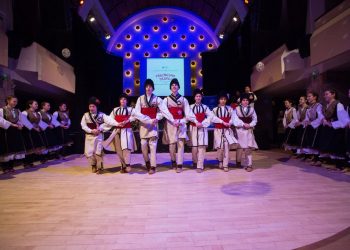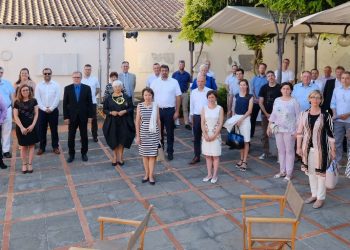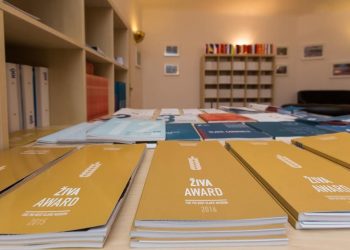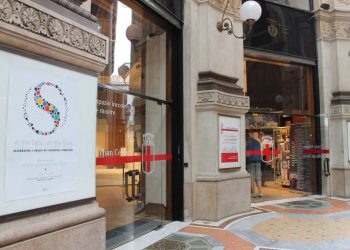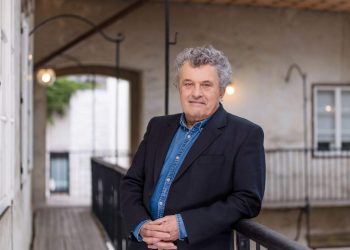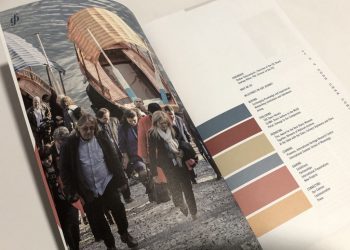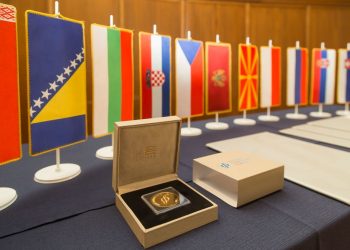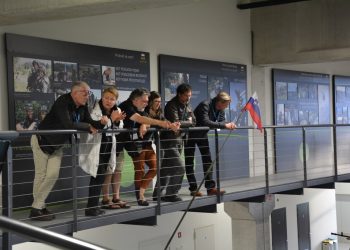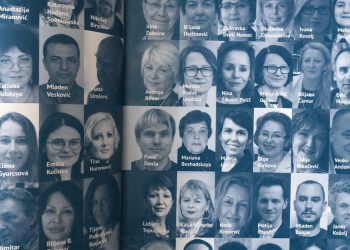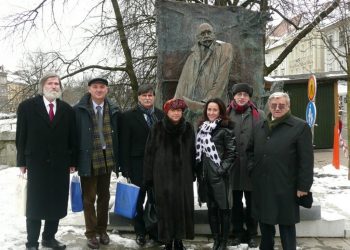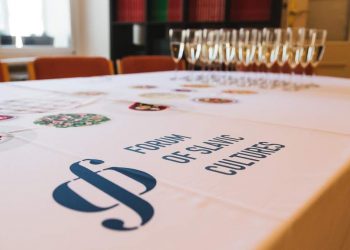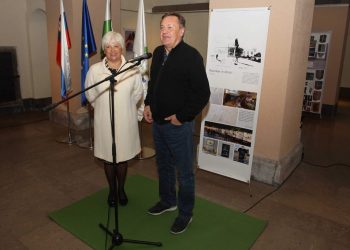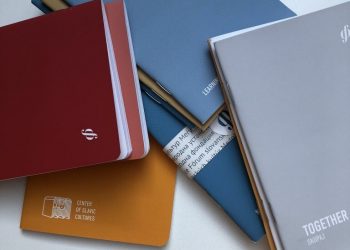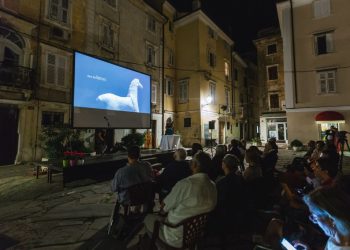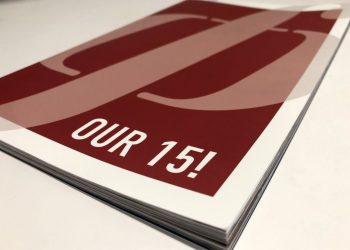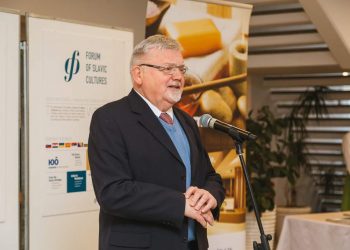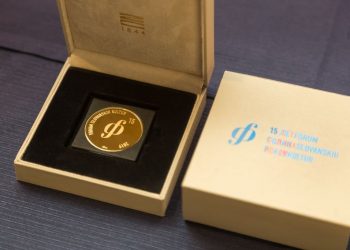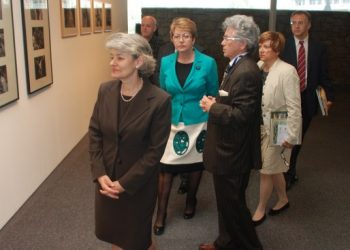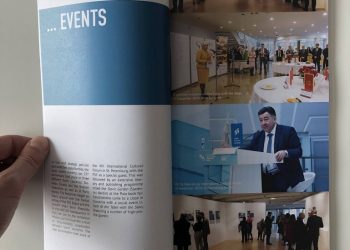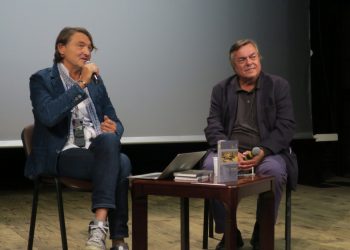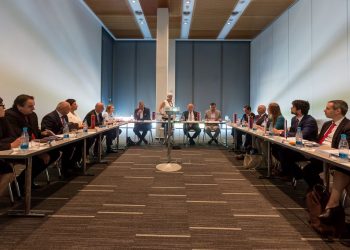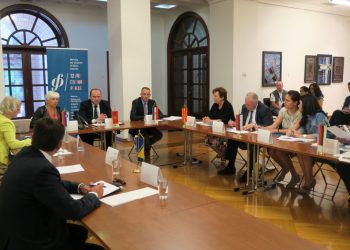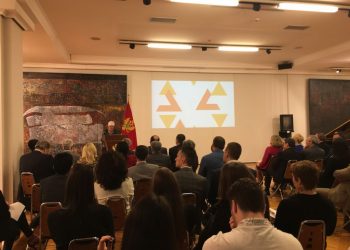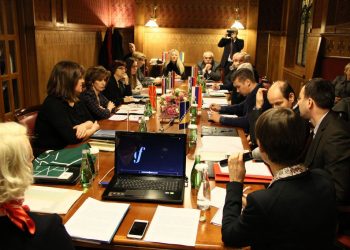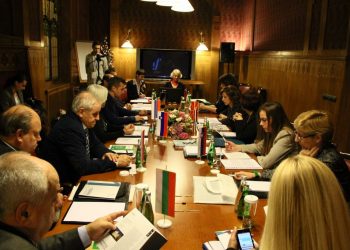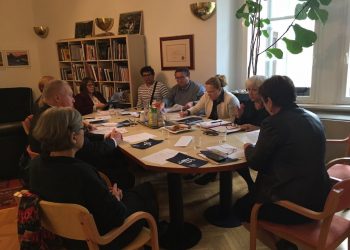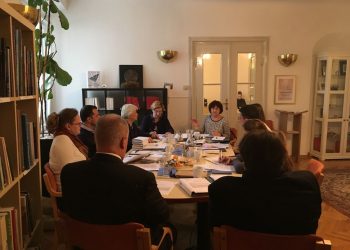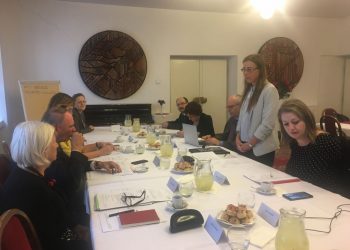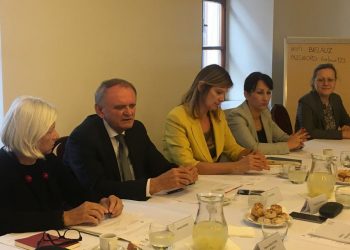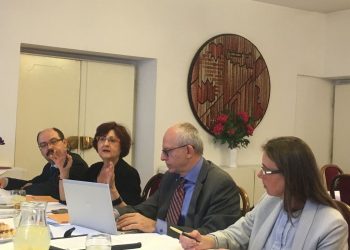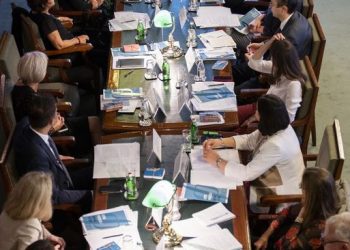О нама
Форум словенских култура (ФСК) је међународна непрофитна фондација која делује у јавном интересу, а идеја о њеном оснивању изникла је из културног миљеа почетком 21. века. ФСК је званично основан 2004. године, а данас повезује више од 300 милиона Словена у тринаест словенских земаља: Белорусији, Бугарској, Босни и Херцеговини, Чешкој, Црној Гори, Хрватској, Пољској, Руској Федерацији, Северној Македонији, Словачкој, Словенији, Србији и Украјини.
МИСИЈА
Мисија ФСК-а је разбуктавање креативности словенских култура. Основна сврха фондације је повезивање словенског културног миљеа и његово представљање у савременом глобалном друштвеном контексту.
Форум словенских култура повезује и представља словенску културу, науку и уметност, њен креативни набој и баштину и активно води бригу о препознатљивом доприносу словенских култура глобалном дијалогу.
ЛИЧНА КАРТА
Назив: Међународна фондација – Форум словенских култура
Скраћени назив: ФСК – Форум словенских култура
Адреса: Улица 27. априла 47, 1000 Љубљана, Словенија
T: +386 (0)8 205 28 00
F: +386 (0)1 256 57 38
E: info@fsk.si
W: https://www.fsk.si
Радно време за јавност: средом од 10 до 13 сати
ИД за ПДВ: SI 11734086
МБ: 2035618
IBAN: SI56 2900 0005 0604 466 (UniCredit Banka Slovenija d.d., Šmartinska 140, 1000 Ljubljana, Slovenija; SWIFT / BIC: BACXSI22)
ТЕМЕЉНИ ДОКУМЕНТИ
ОРГАНИ ФСК-а
Чланови
- Боил Банов, министар културе Републике Бугарске
- Весна Братић, министарка образовања, науке, културе и спорта Републике Црне Горе
- Олга Љубимова, министарка културе Руске Федерације
- Нина Обуљен Коржинек, министарка културе Републике Хрватске
- Ирена Стефоска, министарка културе Републике Северне Македоније
и представници држава посматрача.
Председник: Младен Весковић / Србија
Чланови:
- Гојко Божовић / Србија
- Дубравка Ђурић Немец / Хрватска
- Анатолиј Крејдич / Белорусија
- Томислав Османли / Северна Македонија
- Милорад Поповић / Црна Гора
- Јулија А. Созина / Руска Федерација
- Мирослава Валова / Словачка
Чланови
- Александар Арсовски / Северна Македонија
- Матеа Брстило Решетар / Хрватска
- Емилија Лачна / Словачка
- Вера Лубурић / Црна Гора
- Аида Шабановић / Босна и Херцеговина*
- Огњан Тодоров / Бугарска
- Мирослава Турковић / Србија
Чланови
- Боил Банов, министар културе Републике Бугарске
- Весна Братић, министарка образовања, науке, културе и спорта Републике Црне Горе
- Олга Љубимова, министарка културе Руске Федерације
- Нина Обуљен Коржинек, министарка културе Републике Хрватске
- Ирена Стефоска, министарка културе Републике Северне Македоније
и представници држава посматрача.
Чланови
- Боил Банов, министар културе Републике Бугарске
- Весна Братић, министарка образовања, науке, културе и спорта Републике Црне Горе
- Олга Љубимова, министарка културе Руске Федерације
- Нина Обуљен Коржинек, министарка културе Републике Хрватске
- Ирена Стефоска, министарка културе Републике Северне Македоније
и представници држава посматрача.
Председница:
Дубравка Ђурић Немец / Хрватска
Чланови:
- Стојанка Атанасова / Бугарска
- Андрија Радуловић / Црна Гора
- Тања Ђаковић / Босна и Херцеговина*
- Вадим Дуда / Руска Федерација
- Татјана Краљевска Лазарова / Северна Македонија
- Перина Меић / Босна и Херцеговина*
- Петар Миладинов / Бугарска
- Гордан Николов / Северна Македонија
- Јулија А. Созина / Руска Федерација
- Биљана Тудзаровска Кјупева / Северна Македонија
- Младен Весковић / Србија
и представници држава посматрача:
- Вероника Фалтова / Чешка
- Мирослав Кана / Словачка
- Викторија Ратобилска / Белорусија
- Војтех Мерунка / Чешка
*у мировању
Председник: Младен Весковић / Србија
Чланови:
- Гојко Божовић / Србија
- Дубравка Ђурић Немец / Хрватска
- Анатолиј Крејдич / Белорусија
- Томислав Османли / Северна Македонија
- Милорад Поповић / Црна Гора
- Јулија А. Созина / Руска Федерација
- Мирослава Валова / Словачка
Чланови
- Александар Арсовски / Северна Македонија
- Матеа Брстило Решетар / Хрватска
- Емилија Лачна / Словачка
- Вера Лубурић / Црна Гора
- Аида Шабановић / Босна и Херцеговина*
- Огњан Тодоров / Бугарска
- Мирослава Турковић / Србија
Земље ФСК-а
КАНЦЕЛАРИЈА ФСК-а
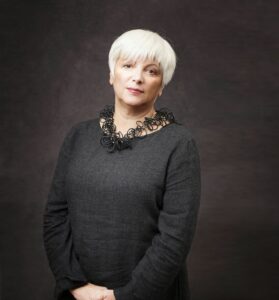
Andreja Rihter, PhD,
Director
E: andreja.rihter@fsk.si
Andreja Rihter was the first President of the Board of the International Foundation– Forum of Slavic Cultures (FSK), serving two terms of office, from its inception in 2004 until 2006 and again from 2008 until 2012, when she was appointed Director of the FSK. She continues to serve as FSK Director today. She is the author of FSK’s first project 100 Slavic Novels, initiator of ŽIVA Award for the best Slavic museum and of the newly developed cultural route project Women Writers Route (WWR) as well as the inceptor of diverse international collaborations between Slavic speaking countries and beyond.
There is an amazing, and growing number of Slavic museums and heritage sites which extend their role in society with a significant local or national impact. That is admirable in itself, but these experiences need to be shared, seen and acknowledged. And the Živa Award – with all its applicants – is a major entrance point for the FSK stakeholders, colleagues and audiences.
The Award serves as a platform for sharing and promoting – in Slavic countries as well as in the broader group of European countries. Both main awards (The Živa Award for the
Best Slavic Museum and the Živa Award for the Best Slavic Heritage Site) are dedicated to the promotion of the protection, preservation, education and communication of museum collections, and of heritage sites, their diversity in type, size and contents as well as their social role by highlighting their innovative and creative approaches, accessibility to the public and openness, their impact on societies, and their contribution to the development of museological principles and ideas.
She obtained her PhD in 2016 with the doctoral dissertation “Heritage of Socialism between Memory and Oblivion” at the Faculty of Arts, University of Ljubljana, after having obtained her master’s degree at the same university in 2008 with her master’s thesis “Development of Tourism in Interwar Celje”.
With a degree in history Andreja Rihter embarked on her professional career in 1981 as a curator at the Museum of Recent History Celje and became its director in 1987.
In 2004, when Slovenia joined the EU, she became the Minister of Culture of the Republic of Slovenia, serving a full term of office. She accumulated more political experience as a Member of Parliament of the Republic of Slovenia between 2008 and 2011. In the same period she was a member of the Parliamentary Assembly of the Council of Europe (2009 – 2011) and President of the Sub-Committee on Cultural Heritage of the Committee on Culture, Science and Sport (2010 – 2011) at the Parliamentary Assembly.
Throughout her career, she has always focused on cultural heritage, history and related activities at the national and international level. In 1991 she became member of the ICOM (International Council of Museums based in Paris) and currently serves as Secretary at the ICOMAM Executive Board (she has been a member of ICOMAM Executive Board since 2016). Upon the founding of the Netherlands-based NGO the European Museum Academy (EMA) in 2009 she became its president and still continues to serve in this capacity. She is also on the panel of judges for the European Museum Awards conferred by the EMA in cooperation with the Micheletti Foundation.
She served as Vice-President of Hands On! – International Association of Children in Museums (2009 – 2019), member of the Board of Directors (2009 – 2015), and currently performs the role of national correspondent.
Before that, in the 1990s, she was very active in Slovenia. She was President of the Museum Association of Slovenia (1998 – 2001), initiator and founder of the School of Museology in Celje (2006) as well as President of the Celje Tourist Association, the oldest tourist association in Slovenia (1997 – 1999).
Andreja Rihter is author of more than 240 scientific, professional and general-interest articles as well as editor of a number of books and catalogues. She regularly attends and organises conferences, roundtables and consultations in Slovenia and abroad.
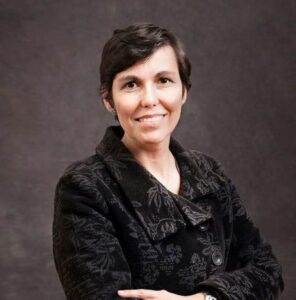
Mateja Jančar
Project Manager
E: mateja.jancar@fsk.si
She graduated in Comparative Literature and Literary Theory and English Language and Literature at the University of Ljubljana. She worked as translator, editor, script writer, PR officer, manager and dramaturg. So far, she has translated nine books and numerous articles, short stories, essays and films. She has experience in project and programme management, organization, publishing, translating and linguistics, and international co-operation.
There is an amazing, and growing number of Slavic museums and heritage sites which extend their role in society with a significant local or national impact. That is admirable in itself, but these experiences need to be shared, seen and acknowledged. And the Živa Award – with all its applicants – is a major entrance point for the FSK stakeholders, colleagues and audiences.
The Award serves as a platform for sharing and promoting – in Slavic countries as well as in the broader group of European countries. Both main awards (The Živa Award for the
Best Slavic Museum and the Živa Award for the Best Slavic Heritage Site) are dedicated to the promotion of the protection, preservation, education and communication of museum collections, and of heritage sites, their diversity in type, size and contents as well as their social role by highlighting their innovative and creative approaches, accessibility to the public and openness, their impact on societies, and their contribution to the development of museological principles and ideas.
Currently she works as a project manager at the International Foundation – Forum of Slavic Cultures; her chief responsibility is the foundation’s literary, publishing and translation programmes. She is also coordinator and Slovenian editor of the 100 Slavic novels series and coordinates the establishment of the new cultural route – Women Writers Route. All project she works on are international and include constant communication in different languages, co-ordination and work in international environment.
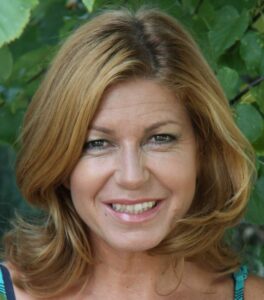
Špela Bogataj
Business Secretary
E: info@fsk.si
After High School of Design and Photography in Ljubljana Špela attended a professional qualification course at Educational Centre Miklošič to become a business secretary. Her first work experience was in a photo studio. She went on to work as a business secretary at the company Arcadia Lightwear, where she helped organise exhibitions and lectures for students and architects.
There is an amazing, and growing number of Slavic museums and heritage sites which extend their role in society with a significant local or national impact. That is admirable in itself, but these experiences need to be shared, seen and acknowledged. And the Živa Award – with all its applicants – is a major entrance point for the FSK stakeholders, colleagues and audiences.
The Award serves as a platform for sharing and promoting – in Slavic countries as well as in the broader group of European countries. Both main awards (The Živa Award for the
Best Slavic Museum and the Živa Award for the Best Slavic Heritage Site) are dedicated to the promotion of the protection, preservation, education and communication of museum collections, and of heritage sites, their diversity in type, size and contents as well as their social role by highlighting their innovative and creative approaches, accessibility to the public and openness, their impact on societies, and their contribution to the development of museological principles and ideas.
She gained experience in working with people, in the field and in the studio, when she joined a casting agency, where she was also in charge of the standard administrative tasks. The next step in her career was opening her own shop with kids’ textiles and accessories, through which she gained extensive experience and knowledge in how to run a business. Throughout her career she developed her business communication skills, and her knowledge of English and Italian helped her to effectively work in different environments. Today she works as a business secretary at the Forum of Slavic Cultures.
ИСТОРИЈА ФСК-а
Форум словенских култура (ФСК) је непрофитна и невладина организација која повезује Бугарску, Босну и Херцеговину, Хрватску, Северну Македонију, Пољску, Русију, Србију, Црну Гору, Словенију, Белорусију, Словачку, Украјину и Чешку у међународну организацијску структуру. У оквиру својих активности од 2004. године, ФСК је постао катализатор активног интеркултуралног дијалога међу словенским земљама.
Иницијатива за оснивање Форума словенских култура (ФСК) родила се 2002. године. Савремени процеси глобализације и чињеница да су се словенске земље придружиле Европској унији представљали су ширу полазну тачку за оснивање. У децембру исте године, на иницијативу словеначке министарке културе, министри културе земаља чији становници говоре словенске језике неформално су се састали на Брду при Крању у Словенији. Након дуготрајних прелиминарних припрема и договора, формулисали су заједничко саопштење о потреби да земље ојачају и подстакну узајамну сарадњу на подручју културе у најширем смислу, као и да олакшају сарадњу у европским и другим међународним организацијама у оквиру Форума словенских култура, чије би седиште требало да буде у Љубљани. Влада Републике Словеније основала је Међународну фондацију Форум словенских култура 2004. године. Чланове првог управног одбора ФСК-а именовале су Словенија, Бугарска, Босна и Херцеговина, Хрватска, Северна Македонија, Пољска, Русија и Србија и Црна Гора. Оснивачка седница Управног одбора ФСК-а одржана је 29. јуна 2004. у Љубљани. У Љубљани је 20. и 21. марта 2006. године одржана и оснивачка седница Програмског савета ФСК-а.
Фондација је на почетку поставила два дугорочна циља:
- Подстицање развоја културне сарадње међу свим земљама чији становници говоре словенске језике. Размјеном информација и знања, као и њиховим непосредним ширењем у јавности, може допринети бољем међусобном познавању земаља учесница.
- Подстицање развоја културне сарадње међу свим земљама света. Учинити словенске културе препознатљивима и привлачнијима изван језичких граница словенских земаља. Допринети већем занимању и бољем разумевању света, нарочито унутар ЕУ и других језичких подручја света.
Од самог почетка, фондација својим пројектима подстиче културну сарадњу, међусобно упознавање и дијалог културних радника из словенских земаља, који се заснивају на равноправном учешћу, а не искључиво на језичком национализму, што је био циљ панславизма. ФСК јача активности сарадње на пољу уметности, књижевности, образовања и истраживања.
Важан фактор у формирању сопствене националне културе је откривање онога што је издваја од осталих, мада врло сродних култура. Ако сопствену културу посматрамо као изоловану, непоновљиву појаву, онда нема потребе да је даље развијамо, обогаћујемо и поносимо се њоме пред другима – културна изврсност настаје тек кад своју културу издвојимо од других. Међутим, најпре морамо добро упознати друге културе и дозволити им да пређу наш културни праг, јер само у фузији различитих култура можемо заиста разумети и правилно проценити сопствену посебност.
Због свог геополитичког положаја, Словенија је „природни“ покретач такве врсте повезаности – повезаности земаља у којима говоримо словенске језике. Налази се на западном рубу словенског света, а уједно је и чланица ЕУ. У интересу сопствене културе и идентитета, доноси шири интерес за интеграцију у ЕУ, што значи повећање угледа и јачање снаге у међународној заједници. Улога и иницијатива Словеније је кохезивна и заснива се на равноправном партнерству свих учесника. Култура и уметничка продукција словенских земаља кроз своју историју је оставила изузетна остварења и опипљиве трагове на глобалном нивоу. Понекад се ствара утисак да је савремена културна продукција такозваног „словенског Истока“ маргинална, да још није интегрисана у такозвани „западни свет“ уметности. ФСК тврди да су креативне моћи и уметнички потенцијали земаља већи него што би се могло закључити из њиховог селективног присуства у западном уметничком систему. Зато је један од задатака ФСК-а и то да буде актуелан управо у свом преиспитивању статуса уметности и културе у ширем смислу данас.
Фондација је 2012. године усвојила Стратешки план и њиме редефинисала своју мисију: „ФСК разбуктава креативност словенских култура“; главне активности ФСК-а јесу и остају:
- подстицање протока културних информација из свих земаља учесница,
- подстицање провођења заједничких пројеката на подручју културе, науке и туризма,
- успостава образовних програма (у облику стипендија),
- подстицање мобилности уметника међу земљама учесницама,
- покретање иницијатива за културне пројекте, размене или гостовања из свих земаља учесница,
- промоција заједничких истраживања,
- промоција сарадње на подручју лингвистике, славистике уопште, организовање конференција, семинара, симпозијума и других састанака.
Приликом оснивања Међународне фондације – Форум словенских култура, написали смо:
„Јединствени / јасни циљ Међународне фондације – Форума словенских култура није само квалитетна подршка словенској сарадњи, већ и промена друштвених услова за отворено и плодно стваралаштво словенских култура.“
Након 16 година рада, веома нам је драго што можемо закључити да свој циљ остварујемо и настављамо да га градимо.
Literary writing is an important constituent of national culture, as it has an added value that no other artistic discipline possesses: language, which German Romantic philosophers claimed was the primary source of national identity. It is also what our first project, the 100 Slavic Novels is all about: promoting and strengthening language and cultural exchange, which is even more challenging due to our linguistic kinship and joint “transition”. But the collection aims beyond promoting mutual understanding between Slavic nations, its goal is also to spread the word of the best of Slavic creativity among non-Slavic literature lovers. The project took off in 2006, when members, under the baton of Andreja Rihter, defined the basic parameters of cooperation at meetings in Belgrade in Ljubljana. In the same year, the book series received its visual identity. The first translations came out in Slovenia, Serbia, Slovakia and North Macedonia, and soon after also in Russia. Later they were joined by Belarus, Bolgaria, Croatia and Montenegro.
At the Forum of Slavic Cultures we have been actively involved also in a number of literary festivals: Slavic Bridge (Ljubljana, Strasbourg), Slavic Embrace (Varna – Bulgaria), Struga Poetry Evenings (Struga – Macedonia), Days of Poetry and Wine (Medana, Ptuj – Slovenia) and Stranou (Beroun – the Czech Republic), writers’ meetings at the Tolstoy estate Yasnaya Polyana, Fabula Festival (Ljubljana) and most recently also in the Slavic Garden at the Pula Book Fair(y) (Croatia, 2019). We presented our 100 Slavic Novels at several exhibitions across Europe; among the most notable was the exhibition at the UNESCO headquarters in Paris in 2016, when we celebrated its 10th anniversary. In nearly 15 years of our operation our book series has made an appearance at a number of events, including conferences, round tables, exhibitions and readings in Serbia (2015, 2016, 2017, 2018, 2019), Croatia (2018), England (2016), Germany (2018), Russia (2017, 2018, 2019), China (2016), Montenegro, North Macedonia (2014), the Czech Republic (2017), Slovakia (2018), Austria (2017), Brazil (SLAWA – 2015) and Slovenia (2016, 2017, 2018 PEN, 2019). Between 2010 – 2014 the FSK cooperated with the Public Fund for Cultural Activities in the mobility programme for artists, predominantly writers.
Upon its inception, the Forum of Slavic Cultures defined preservation and promotion of Slavic cultural heritage as one of the priorities of its mission, in particular in terms of ethnography, folklore studies, museology and archival science, highlighting as one of its goals the establishment of study programmes (scholarships) and exchange schemes for curators, restorers and similar, to promote mobility of experts between participating countries.
More systematic activities began in 2006, when the Programme Council adopted its heritage guidelines, but the first concrete projects took place in 2011 when the heritage project group met for the first time:
- preparation and organisation of the first joint exhibition My portrait for the museum, which opened in 2012 at the UNESCO headquarters in Paris. The project involved … institutions from … countries;
- we started preparations for the Živa Award for the best Slavic museum, which was conferred for the first time in Skopje in 2014.
… more - In 2012, in the framework of the Maribor – European Capital of Culture programme and in cooperation with the Assembly of the Council of Europe we organised the conference: The History of Socialism: Film and Technical Heritage.
- In 2006 we organised the first seminars on the training of museum professionals. The first seminar for directors of museums of North Macedonia was held in Ohrid, and was organised by Andreja Rihter with Massimo Negri (EMA) and the Ministry of Culture of North Macedonia. Our seminars continued in North Macedonia in cooperation with ICOM and the Museum of Macedonia, and in Serbia in collaboration with the Gallery of Matica Srpska and the Ministry of Culture. In Slovenia we were actively involved in organising instructional seminars in the framework of the International Summer School of Museology.
Individual educational projects of the International Summer School of Museology in Piran have grown considerably. Since 2018 they take place in the framework of Piranova, International Heritage Research Centre in Piran.
The FSK has been active in education for a number of years, in particular at the international summer school META Humanities, which is organised by the University of Primorska in Koper, and at the International Seminar of Slovenian Language, Literature and Culture, which is organised by the Centre for Slovene as the Second/Foreign Language.
We have been pursuing our primary goal, collaboration in joint projects within our respective countries, also in the framework of the project Together. The project connects state and national archives. This collaboration has generated a number of joint exhibitions, publications and conferences. The FSK co-organised the 1st conference of national archives of Slavic countries in Lipica in 2010 and at the initiative of the state archives began working towards their collaboration.
The first independent conference thus took place in 2015 in Ljubljana and focused on World War I. The second conference took place in Dubrovnik in 2016, in cooperation with Croatian State Archives and ICARUS Croatia. The third conference took place in Warsaw in 2017 in cooperation with the State Archives of Poland. Our collaborations take place also through joint exhibitions: Slavic Capitals in 2D, 2013, at the UNESCO headquarters in Paris, which travelled to Cetinje later the same year, and to Skopje, Belgrade and Sofia in 2014. The archives organised and put on the exhibition Women and the Great War at the UNESCO headquarters in Paris in 2019. The exhibition was opened by Saniye Gulser Corat, UNESCO’s director for gender equality.
Exhibitions are an especially prominent feature of our collaboration with museums and galleries. As early as in 2008, the FSK in collaboration with the Slovenian Ethnographic Museum, ZRC SAZU and the Russian Ethnographic Museum of St. Petersburg organised a very well-received ethnographic exhibition of national costumes in Brussels. The exhibition was accompanied with a film on DVD, Les Slaves de l’Europe by Naško Križnar (ZRC SAZU).
Another notable event was our exhibition of intangible heritage – Slavic Carnivals, which premiered in June 2014 at UNESCO’s headquarters in Paris. It featured 12 museums from 12 Slavic speaking countries and was accompanied with a catalogue. The exhibition opened on 3 June 2014 with inaugural addresses by Mechtild Rossler, Deputy Director of UNESCO’s Heritage Division, Hans Martin – Hinz, president of the International Council of Museums ICOM, Andreja Rihter, Director of the FSK and Bojana Roglej Škafar, Director of the Slovene Ethnographic Museum. In 2015, the exhibition travelled to Pazin/Croatia (Ethnographic Museum of Istria), Belgrade/Serbia (Ethnographic Museum), Banja Luka/Bosnia and Herzegovina (Museum of the Republic of Srpska) and Kotor/Montenegro (Maritime Museum). In 2016, the exhibition visited St. Petersburg/Russia, where it was on show at the Russian Ethnography Museum.
Another important exhibition was a double show World Heritage in the Slavic World (photography) and Slavs. Legends Past and Present (folklore) at the UNESCO headquarters in Paris in 2011. The same year we organised a one-off exhibition on one of the most important artefacts of the Slavic cultural heritage – the 11th-century Codex Suprasliensis, which took place in Brdo pri Kranju. The FSK also helped in the documentary film on the ethnologist and linguist Matija Majar-Ziljski Illusions Lost, we published a history monograph on meetings at the Russian Chapel on Vršič (2007) and the proceedings Slovenian Diplomats in the Slavic World (2010).
Our second goal was pursued through various activities: scientific symposia of the Slovenian Science Institute in Vienna Reformation in Central Europe (2008) and 1989-2009: Religion and a Shift in East and Southeast Europe (2009); we also make regular appearances at the UNESCO headquarters. In addition to said exhibitions we should point out the presentation of At the Table with the Slavs, the first world monograph on Slavic cuisines, in Milan (2015), Beijing (2016) and Jamtli, Sweden (2017). We cooperate with the Council of Europe – Assembly of the Council of Europe, and in the last three years also with the European Institute of Cultural Routes of the Council of Europe from Luxemburg.
The FSK gave the initiative for the association Women Writers’ at the Beginning of the 20th Century. Its goal is to devise and manage a cultural route dedicated to women writers, which will shed light on the history of human rights and democracy in Europe, present the extraordinary efforts of women writers in these processes and expand research into women’s writing in the context of European history, identity and values. Through inspiring presentations and dynamic cultural activities it will introduce the life and work of women writers to wider audiences, and strengthen and consolidate scientific, cultural and tourist exploration of women’s writing, the places that marked them and their lives. The route begins in our region and will extend across Europe.
Our last project is called Transformations – FROM the Slavic Clothing Tradition TO Contemporary Designs. Its aim is to bring together creative fashion efforts from our countries and present them to the world. We create and build a long-lasting umbrella platform of fashion creativity of Slavic countries for both the general and professional public in Slovenia and abroad.
ИЗВЕШТАЈИ И ПОЛИТИКЕ
Због своје преданости већој транспарентности и већем приступу јавним информацијама, ФСК с вама дели политику приватности и годишње извештаје.
FSK Annual Report 2019
FSK Annual Report 2017
FSK Our15!
FSK Annual Report 2016
FSK Annual Report 2015
Придружите нам се и уживајте у ексклузивним привилегијама као што су бесплатни улази, посебни попусти и још много тога.

